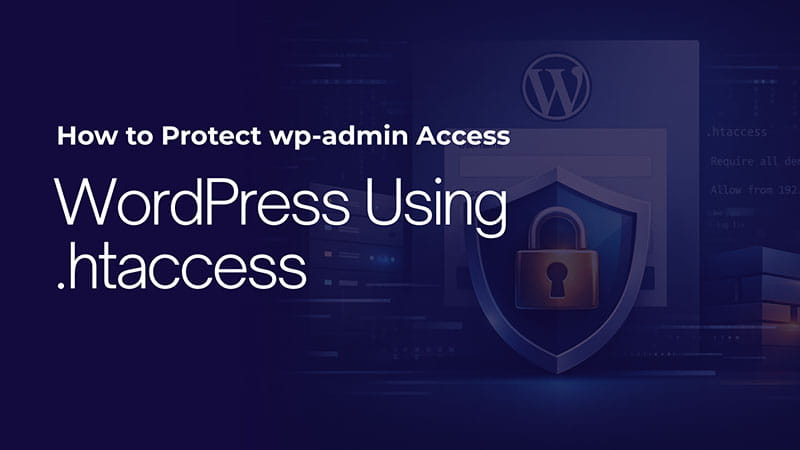The methods people use to find businesses have evolved significantly over the last 10 years. Instead of using phone books or solely trusting what people say, most customers now tend to start their buying process online. They Google “best bakery near me,” ask Siri for “cheap website designers,” or employ AI assistants such as ChatGPT and Perplexity to acquire recommendations.
In case your small business is not listed in those searches, then you are like a ghost to new customers. This is the point where Search Engine Optimization (SEO) can become a game-changer.
This is an SEO guide for absolute beginners where we introduce SEO, discuss its importance for small businesses in 2025, explain the SEO mechanism, talk about the different SEO types, share the beginner’s practical strategies, list the mistakes that should be avoided, and bring to you the latest trends like ALO, AEO, and GEO, which are the future of search.
What is SEO?
SEO (Search Engine Optimization) is the activity of making your website more visible to search engines like Google, Bing, and Yahoo. The main objective is that your website is found when potential customers look for the products or services that you provide.
Try to correlate SEO with real estate online. If your website is on page 10 of Google, it’s like having a store that is located in a deserted alley. But if you are on the first page, especially in the top three results, it is like having a store in the most popular part of the town where everyone can see you.
SEO main aspects are:
- Keywords: The words people enter into Google.
- Content: Useful, relevant articles, blogs, and service pages.
- Backlinks: The other websites that link to your website as a trusted source.
- User Experience: How simple and quick your site is to use.
If it were not for SEO, you might have the finest products and services, but no one would be aware of you on the web.
Why SEO is Important for Small Businesses in 2025
SEO has always been important, but it is just absolutely critical for small businesses. Here is why:
- AI & Voice Search Are Growing: More people are using voice assistants (Alexa, Siri, Google Assistant) and AI-powered tools to get answers. If your website is not optimized for these, the traffic will go to your competitors.
- Paid Ads Are Getting Expensive: It is good to run ads on Google or Facebook, but it is costly. Once you stop paying, the traffic disappears. SEO creates long-term organic visibility that continues to bring in customers without your constant spending.
- Trust & Credibility: People trust organic search results more than paid ads. Your small business gets authority and credibility instantly by ranking on the first page.
- Local Competition is Fierce: So whether you are a plumber, a dentist, a restaurant, or a retailer, your local competitors are also bidding for the spotlight. SEO guarantees your business will be the first to appear when users type ″near me″ in their searches.
- Future-Proofing Against AI Search: Google’s Search Generative Experience (SGE) and AI-driven search engines get answers directly from websites. However, optimizing for SEO ensures your business visibility as search changes.
Types of SEO
SEO just isn’t a single entity; it is a combination of different strategies. Knowing the different types will help you create a more powerful online presence.
On-Page SEO
This means changing the things on your website to be better:
- Inserting main keywords in the title, headings, and content in a natural way.
- Producing clear, useful, and interesting content that meets the users’ needs.
- Adding the content with images, videos, and infographics, and providing alt text for them.
- Organizing the information on the website by using H1, H2, and H3 headings.
On-page SEO is what makes your website more or less ideal for Google and your users.
Off-Page SEO
Off-page SEO refers to the process of increasing the authority of your website externally from your own domain. The most important thing in this area is backlinks.
- If trustworthy websites link to you, Google considers your content reliable.
- Writing guest posts, influencer mentions, and issuing press releases are some of the ways to get quality backlinks.
- Besides, the signals from social media and mentions of your brand also help rankings to grow, although not directly.
Off-page SEO would be more like reputation management. In the same way as it works in society, the more people talk positively about your business, the more trusted you become.
Technical SEO
Technical SEO aims to ensure that your website is fast, secure, and that Google can easily access it.
Important elements:
- Page Speed: Slow sites drive away users.
- Mobile-Friendliness: More than 70% of the searches are done on mobile.
- Secure Website (HTTPS): Gives confidence to users and is a ranking factor.
- Clean Site Structure: Simple navigation and internal linking.
- Schema Markup: A language that makes it easier for search engines to get your content.
Even the most amazing content without technical SEO may not be able to rank if Google bots cannot properly index your site.
Local SEO
Typically, local SEO is the number one revenue generator for small businesses.
- Use Local SEO to actively manage your Google My Business (GMB).
- Put your NAP (Name, Address, Phone) in every directory to make it identical.
- Get more positive reviews from your clients.
- Find customers using local keywords such as “best pizza in New York” or “plumber near me.”
With the help of Local SEO, you can be found on Google Maps and in “near me” searches, which are usually very profitable as the users are on their way to a purchase.
How SEO Works – Step by Step
SEO might appear to be a complex maze, but when you dissect the process, you are able to see that it is very simple. However, the stages of the process can be outlined as follows:
- Crawling: Google bots (spiders) run through your website pages. If your site is not crawlable (because of broken links, blocked pages, or poor site structure), Google will not be able to find your content.
- Indexing: Following crawling, Google places your pages into its database. If your content is duplicate, thin, or low-quality, Google may not index it.
- Ranking: At the time of a search, Google picks the most relevant pages out of the indexed ones. It employs over 200 ranking factors such as keywords, backlinks, site speed, mobile optimization, and user engagement.
The more your site is optimized, the higher you will be. You could compare it with a library — crawling is finding books, indexing is putting them on shelves, and ranking is selecting the book that shows first when someone asks a question.
SEO Strategies for Beginners in 2025
These are easy and practical approaches that small companies are able to implement straight away:
- Do Keyword Research: Employ (Google Keyword Planner, SEMrush, Ubersuggest) to locate keywords that your clientele will be searching for.
- Create Long-Form Content: Blog in-depth posts on topics ranging from 1,500 to 2,500 words.
- Optimize for Voice Search: The addition of FAQs and using conversation-like phrases (for instance, “What is the best…?”) being some of the ways.
- Internal Linking: Allow the visitors (and the search engines) to smoothly move around by linking your blog posts and service pages.
- Improve Site Speed: Among the measures you can take are image compression, implementation of caching, and hosting with a reliable server.
- Leverage Local SEO: Utilize GMB, motivate the delivery of reviews, and go after location-specific keywords.
- Use Multimedia: Incorporate images, videos, and infographics to attract visitors.
Consistency is essential. By regularly publishing 2-3 blogs per week, you can establish your authority on the subject matter more quickly.
Common SEO Mistakes to Avoid
Numerous small businesses are unsuccessful in local search engine optimization as they consistently commit the same errors. The following are the main ones not to fall into:
❌ Keyword Stuffing – Trying to overuse keywords in an unnatural way will make the text difficult to read and may also result in a Google punishment.
❌ Duplicate or Copied Content – Simply by copying the competitors’ content will not help you to rank; creating original, high-quality content is the key.
❌ Ignoring Mobile & Speed – If your site is slow, visitors will abandon it and your ranking will be affected.
❌ No Backlinks – If your website is not linked to any other sites, it means it has no value.
❌ Publishing Without Updating – Even the oldest blogs have to be regularly updated with new data to remain relevant.
These mistakes, if you steer clear of them, can save you from months of wasted effort and frustration.
Latest Trends in SEO (ALO, AEO, GEO in 2025)
Searching has changed. It is still about Google rankings but not only. AI and new technologies have changed the way people search for information.
ALO (Answer-Language Optimization)
ALO refers to tailoring the content of your website to meet the needs of AI-based systems such as ChatGPT, Gemini, and Perplexity. These tools draw answers straight from websites. In order for your content to be ranked here, it has to be written in an easy-to-understand, conversational style with direct answers and FAQs.
AEO (Answer Engine Optimization)
AEO is aimed at the featured snippets as well as the voice search. Google often provides a brief summary of the answer at the top of the page when a question is asked. So to optimize, one needs to write short and concise answers (50-60 words), use step-by-step instructions, and cover all the possible “how” and “what” queries.
GEO (Generative Engine Optimization)
GEO is concentrated on AI-driven search engines such as Google SGE (Search Generative Experience). These AI outcomes tap into the content of the most reliable sources. Companies have to produce comprehensive content, utilize schema markup and create clusters of interlinked blogs on one topic.
In combination with one another, ALO, AEO, and GEO will make your website ready for SEO’s coming changes. Companies that make these adjustments early will still be leading the game later.
Benefits of SEO for Small Businesses
SEO is the best ROI (Return on Investment) for small businesses, and here are the reasons why:
- Free, Targeted Traffic – Bring in the clients you want without spending money on advertisements.
- Evergreen Results- SEO, unlike ads, continues to function for a long time.
- Builds Trust & Authority – High rankings are equivalent to trustworthiness.
- Better Conversions – Users who find you through searches are pre-interested in what you offer.
- Scalable Growth – Ranking for new pages gets easier as your site authority increases.
Basically: SEO is like tree planting. It takes a while to develop, but once mature, it offers shade (traffic & sales) for years.





